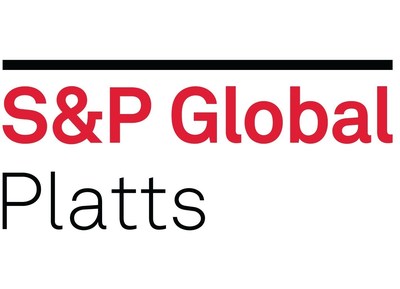Press Releases
HOUSTON and NEW YORK, Sept. 21, 2020 /PRNewswire/ -- S&P Global Platts ("Platts"), the leading independent provider of information and benchmark prices for the commodities and energy markets, today announced the launch of the first-to-market Sustainable Aviation Fuel (SAF) price assessment for the Americas, aimed at bringing transparency to a developing market as the airline industry embraces energy transition. This follows the Platts launch of Europe's first-ever independent price references for sustainable aviation fuel on August 17, 2020.
Ian Dudden, Global Content Director, Metals and Agriculture at S&P Global Platts, said: "The commitment to decarbonisation is alive and well within the airline sector, despite the travel-related demand devastation brought about by the coronavirus pandemic. While the spot physical market for Sustainable Aviation Fuels is in its infancy, we're pleased to be facilitating this market's emergence with our new cost-based price assessments, which allow for side-by-side comparisons between hydrocarbon-based jet fuel and a green alternative."
As recently as Sept. 14, 2020, the oneworld alliance of 13 major airlines around the world, along with their affiliates, pledged to achieve carbon neutrality by 2050. While members such as British Airways parent IAG, Japan Airlines, Qantas and Finnair had previously set such targets for themselves, they are now being joined by major US carrier American Airlines, also with Alaska Airlines as a oneworld member-elect.
In the US and Canada, the aviation industry in 2019 accounted for around 5%, or nearly 300 million metric tons of total energy CO2 emissions annually, according to S&P Global Platts Analytics, equivalent to 250 kg of CO2 emitted per thousand passengers carried.
With increased focus on transitioning towards a lower carbon future, cleaner fuels are emerging as a compelling solution to achieve emissions reductions within the aviation sector itself, rather than through the purchase of outside offsets - even as consumer awareness grows around the environmental impact of transportation.
Roman Kramarchuk, head of energy scenarios, policy and technology, S&P Global Platts Analytics, said: "Unlike any time in recent history, the world has experienced an industry-crippling destruction of travel and jet fuel demand due to the Covid-19 pandemic, which has had a profound effect in the Americas. Platts Analytics estimates a 35% reduction in US jet fuel consumption this year, but expects a path to recovery by mid-decade, though still remaining below the levels of recent years. New US Environmental Protection Agency (EPA) efficiency standards for aircraft built in the United States could contribute to the continued improvement of the energy intensity of air travel in North America. But SAF uptake in the US is particularly incentivized through federal and state policies – with the ability to earn California Low Carbon Fuel Standard Credits, Federal Renewable Fuel Standard (RFS) D4 Renewable Identification Numbers (RINs) and to take advantage of the federal biomass based diesel blenders tax credit – which together can total several dollars per gallon."
SAF deliveries have been initiated at a number of US airports to fuel flights – with San Francisco and Los Angeles airports among the pioneers, and with Chicago O'Hare, Toronto and Montreal receiving batch deliveries. Facing demands for cleaner energy, some US refiners also have accelerated plans to retool refineries into renewable fuels plants, including Marathon and Phillips 66 refineries on the West Coast.
The new Platts Americas SAF assessments follow active market engagement with producers, consumers, traders and others in the Americas oil and biofuel markets, as the demand for sustainable aviation fuel has grown, as has supply sources.
The cost-based price assessment will be published from September 21, and will reflect the cost of SAF produced from tallow. The daily price assessments will be expressed in US dollars per gallon and reflect the production costs of SAFs for blending into jet fuel. The assessment assumptions will be calculated by S&P Global Platts Analytics based on existing Platts assessments and other fixed costs. The SAF inputs are costs of tallow and hydrogen, added to fixed renewable aviation fuel refinery costs, then deducting the by-products of naphtha, propane and diesel. Platts will also publish a US SAF value that takes into account environmental credits, by deducting the Renewable Identification Numbers under the US Renewable Fuel Standard, credits from the Low Carbon Fuel Standard administered by the California Air Resources Board and, when applicable, the US Biodiesel Tax Credit.
S&P Global Platts is committed to ongoing review of its methodology specifications and assumptions as the SAF market continues to develop and evolve and as Platts continues to engage with the marketplace.
Additional details about the S&P Global Platts Sustainable Aviation Fuel cost-based price assessment methodology can be found in the Subscriber Note: https://www.spglobal.com/platts/en/our-methodology/subscriber-notes/092120-platts-launches-us-west-coast-saf-ex-refinery-prices
Media Contacts:
Americas: Kathleen Tanzy +1 917 331 4607, Kathleen.tanzy@spglobal.com
About S&P Global Platts
At S&P Global Platts, we provide the insights; you make better informed trading and business decisions with confidence. We're the leading independent provider of information and benchmark prices for the commodities and energy markets. Customers in over 150 countries look to our expertise in news, pricing and analytics to deliver greater transparency and efficiency to markets. S&P Global Platts coverage includes oil, gas, LNG, power, petrochemicals, metals, agriculture and shipping.
S&P Global Platts is a division of S&P Global (NYSE: SPGI), which provides essential intelligence for individuals, companies and governments to make decisions with confidence. For more information, visit www.platts.com.
SOURCE S&P Global Platts

